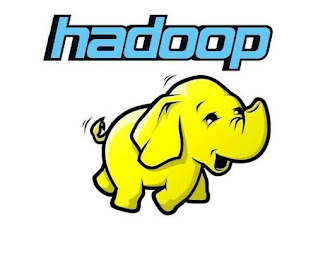Creating a full course on Hadoop, an open-source framework for big data processing, is a comprehensive task. Hadoop includes various components and concepts, so this course outline will cover essential aspects of Hadoop development and administration. Depending on your target audience and the depth you want to cover, you can adjust the course duration and content accordingly.
Course Title: Mastering Hadoop: Big Data Processing
Module 1: Introduction to Big Data and Hadoop
- Lesson 1: What is Big Data?
- Lesson 2: Challenges in Big Data Processing
- Lesson 3: Introduction to Hadoop
- Lesson 4: Hadoop Ecosystem Overview
Module 2: Setting Up a Hadoop Cluster
- Lesson 1: Hardware and Software Requirements
- Lesson 2: Hadoop Cluster Architecture
- Lesson 3: Installing Hadoop (Hadoop Distributed File System - HDFS)
- Lesson 4: Configuring a Single-Node Hadoop Cluster
Module 3: Hadoop Distributed File System (HDFS)
- Lesson 1: Understanding HDFS Architecture
- Lesson 2: HDFS Commands and Operations
- Lesson 3: Data Replication and Fault Tolerance
- Lesson 4: Hadoop HDFS Best Practices
Module 4: Hadoop MapReduce
- Lesson 1: MapReduce Overview
- Lesson 2: Writing and Running MapReduce Jobs
- Lesson 3: Combiners and Partitioners
- Lesson 4: MapReduce Design Patterns
Module 5: Data Ingestion and Integration
- Lesson 1: Importing Data into HDFS
- Lesson 2: Using Apache Flume for Data Ingestion
- Lesson 3: Apache Sqoop for Data Import/Export
- Lesson 4: Apache Kafka for Real-time Data Streaming
Module 6: Querying Data with Hive and Pig
- Lesson 1: Introduction to Hive
- Lesson 2: Writing HiveQL Queries
- Lesson 3: Introduction to Pig
- Lesson 4: Writing Pig Latin Scripts
Module 7: Hadoop Ecosystem Components
- Lesson 1: Apache HBase for NoSQL Data Storage
- Lesson 2: Apache Spark for Data Processing
- Lesson 3: Apache Storm for Real-time Data Processing
- Lesson 4: Apache Oozie for Workflow Management
Module 8: Managing and Monitoring Hadoop Cluster
- Lesson 1: Hadoop Cluster Administration
- Lesson 2: Resource and Job Management with YARN
- Lesson 3: Monitoring and Troubleshooting
- Lesson 4: Security in Hadoop (Kerberos, Ranger, etc.)
Module 9: Data Storage and Formats
- Lesson 1: Avro, Parquet, and ORC File Formats
- Lesson 2: Data Compression Techniques
- Lesson 3: Data Serialization (Avro, Thrift, Protocol Buffers)
- Lesson 4: Working with Different Data Storage Solutions
Module 10: Advanced Topics
- Lesson 1: Hadoop High Availability and Disaster Recovery
- Lesson 2: Hadoop Best Practices and Optimization
- Lesson 3: Hadoop in the Cloud (AWS, Azure, GCP)
- Lesson 4: Hadoop Security and Data Governance
Module 11: Real-world Applications and Use Cases
- Lesson 1: Big Data Use Cases in Various Industries
- Lesson 2: Case Studies and Success Stories
- Lesson 3: Building a Big Data Solution
Module 12: Keeping Up with Hadoop
- Lesson 1: Exploring the Latest Hadoop Ecosystem Updates
- Lesson 2: Learning Resources and Community Support
- Lesson 3: Hadoop Certification and Career Opportunities
Module 13: Final Project
- Lesson 1: Designing Your Own Hadoop Project
- Lesson 2: Implementation and Data Processing
- Lesson 3: Presentation and Code Review
This course outline covers the fundamental aspects of Hadoop, from installation and basic concepts to more advanced topics like cluster management, security, and real-world applications. You can adapt the course content and duration based on your audience's needs and prior knowledge. Practical exercises, labs, and projects should be integrated into the course to reinforce learning and provide hands-on experience with Hadoop.






0 Comments